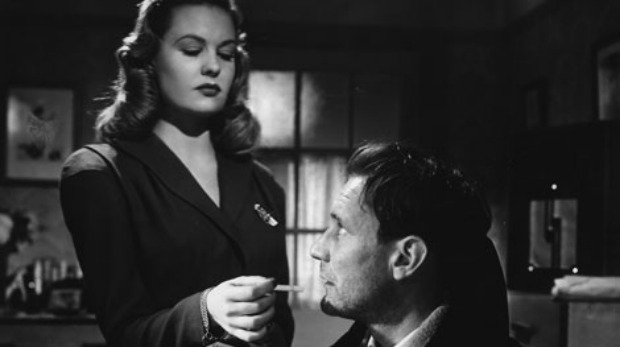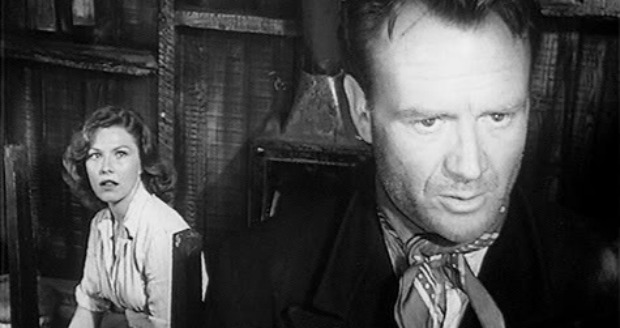
Irish Noir

Most academics love the idea of time off from teaching to write up long cherished projects, so when I was awarded a research grant to finish Shadows Are My Friends (a book about British film noir) I was considered very fortunate. But this was going to be my tenth book and I had no illusions about the joy of writing. I lived in a pleasant house in Sheffield but I had spent too long working on a mammoth reference guide – Directors in British and Irish Cinema – so I needed a change. I was divorced, with a daughter halfway through medical school and a son about to start university, my job was in Leicester, fifty-five miles away, I’d had a heart attack in 2005 and it wouldn’t be long before I retired. I had bought a horse while on holiday, and as she never seemed happy in England, I decided to take her back to Ireland and live there myself, at least for a time. For a year I’d be able to ride the horse every day and spend the rest of the time writing, with nothing but Guinness and leprechauns to distract me.
The noirish British films of the 1940s – Brighton Rock, They Made Me a Fugitive, It Always Rains on Sunday, The Third Man – owe less to German Expressionism and post-WW2 angst than they do to gloomy French poetic realism and the blood-curdling excesses of Victorian stage melodrama. Le jour se lève and Le quai des brumes combine with Maria Marten or The Murder at the Red Barn and The Face at the Window to produce strange amalgams like Obsession, where Robert Newton’s cuckolded husband methodically empties hot water bottles full of acid into a bath to dissolve the remains of his wife’s latest beau while carefully explaining to him how he has devised the perfect murder. Or Temptation Harbour (based on Georges Simenon’s Newhaven–Dieppe) where Newton – eschewing eye-rolling villainy – plays a railway signalman who dives into the dock to rescue a man but comes out clutching a suitcase full of stolen money. He dreams of a better life but squanders the money on a fairground mermaid and murders the man who comes looking for it. In Victorian melodrama, injustice and villainy are balanced by kindness, gallantry and unlooked for good fortune. The two world wars of the twentieth century shattered such rose-tinted expectations and stirred up a miasma of pessimism. Greene and Ambler, Chandler and Hammett, Sartre and Camus, displayed a bleak grey world where right and wrong, injustice and fairness had become confused and no-one was certain how to disentangle them. It was this ethos that permeated the 40s American thrillers we now regard as classic film noirs. Authority is corrupt or at best ineffectual; friends betray you; sexual relations are a snare not a solace; and the world, if not actively malevolent, is tarnished and cruelly unpredictable.
What has come to pass since has been a gradual opening out of film noir to embrace the pastiches and homages of neo-noir, and a search for noir sensibility in other national cinemas. Meanwhile, noir literature was stretched beyond American detective fiction to encompass British low-life novelists like James Curtis and Gerald Kersh and the gutter modernism of John King and Irvine Welsh; the French noir of Léo Malet and Boris Vian, bizarre offshoots like the country noir novels of Daniel Woodrell set in the Ozark Mountains, where crystal meth laboratories have replaced the moonshine stills and out-of-their-heads rednecks exact awful violence on each other and any stranger foolish enough to stray into their territory.
Ireland has a tragic history of English oppression, of massacre and famine, of treachery and internecine conflict, of religious bigotry and bitter feuds. The legacy of the War of Independence and the Civil War of the 1920s is sufficiently murky to account for Beckett’s abstruse absurdism, Flann O’Brien’s surreal humour, Neil Jordan’s constant returns to the dark repressed. But that was the old Ireland. By 2007 the Celtic Tiger was in its prime and the blandly cheerful face of Bertie Ahern beamed from every lamppost in anticipation of another election victory and more golden years of Fianna Fáil prosperity.
It seemed that Ireland had been blessed by a miracle, retaining its reputation for lovable leprechauns, slow-poured Guinness and the lush greenery that made it the Emerald Isle, but enhancing it with European riches and sophistication. Modern but still in touch with tradition; wealthy but ecologically aware; dynamic but socially responsible.
There were worrying signs for those who cared to notice: the rubbish bags dumped in country lanes, the recklessly driven SUVs, the old mattresses thrown over garden walls, the countryside pock-marked with ugly new houses. And accusations about Ahern’s financial affairs, which did him no harm whatsoever in the 2007 election, make British MPs’ expenses look like bargain basement chickenfeed.
In the noir world, everything is arbitrary and unpredictable. Those plunged into it are often bemused, unskittled, never quite aware of what is happening to them. Orson Welles’ Michael O’Hara drifts through The Lady from Shanghai as if he’s in a dream, entranced by Rita Hayworth’s femme fatale but never quite believing in her. John Mills’ Phillip Davidson, the one honest man among a group of low-life no-goods in The Long Memory, finds himself signalled out as a dastardly murderer, and before he knows what’s going on he’s serving a life sentence in Dartmoor. The same with Trevor Howard’s Clem Morgan in They Made Me a Fugitive, who being a war hero thinks he’s a tough guy until he’s framed for murder. No wonder they’re bitter men when they get out. Even the less than innocent – Fred McMurray in Double Indemnity, Jean Gabin in Le jour se lève are good men tricked by an unlucky twist of fate into becoming murderers. Like Robert Newton in Temptation Harbour, they look back with bitter nostalgia to lives that were mundane but comfortably secure. What had looked bright and happy becomes in a moment tragic and terrible.

In the real world it’s worse. Gabin and Newton, Mills and McMurray retain an aura of dignity when fate lays them low. When everything goes wrong in real life it’s difficult rising above being a victim. Buying a rundown cottage at the height of a property boom was asking for trouble. Builders had got used to big money and short hours – after all they were doing you a favour by increasing the value of your property. Engineers, architects, solicitors were busy dealing with clients with money to burn and sent along the office junior or the not very bright nephew to botch something together. When chickens came home to roost they were disingenuously disowned. Modern sloppiness combined with traditional vagueness about boundaries, regulations, land titles to make everything slippery; honour, professionalism and honesty were bargained away in the pursuit of easy money. Nothing new about this. Handel’s wrote Theodora as Britain began its industrial revolution and had his Christian matriarch blast prosperity as ‘bane of virtue, nurse of passions, soother of vile inclinations.’ I’m naïve and trusting but I don’t approach the world with Candide-like innocence. I might be a professor but I was brought up in Grimsby, not in an ivory tower. Building workers? I’d misspent my youth working on London building sites in the 70s, when every ounce of ingenuity went into doing as little work as possible. Crooks? I still have hours of recordings of Jack Spot recalling his time as ‘King of Soho’ and I’ve written a book on the London underworld. Difficult neighbours? I spent six months living in a Stepney squat, next door to the Angry Brigade, and two years in a hard-to-let council flat on the Larkhall estate, where black rubbish bags festooned the trees and junkies cluttered the stairwells. It’s still a shock though, when you retire to a pastoral idyll, to find yourself standing on a lonely street at 11 ‘o’clock at night with a woman looking like a deranged version of Mr Blobby rushing at you, waving her arms, sticking her chest out and shouting ‘Don’t touch my breasts, you paedophile!’ while her husband, a giant Goblin-like figure lurks behind her swinging a pick-axe.
Forget it. This isn’t Chinatown. This isn’t even the 70s Cornwall of Straw Dogs. In West Cork it’s never been a poor locals versus rich outsiders issue. There’s far more resentment against the nouveau riche. Five years ago my miscreant neighbours had a huge windfall, and having squandered that they were looking for more easy money. Most of the local people here regard them with contempt. Intimidation and sullen persistent obstruction ruin harmony and peace of mind, but their liveable with. In line with the noir code, nemesis only threatened when the law got involved. Nobody could accuse the genial Bantry police of corruption or even partiality. But lawyers are a different matter. Arrogant, pompous, incompetent, duplicitous, dishonest, evasive, selfish sums up my experience of them. Everyone in Bantry seemed to have a story about being persuaded to go to court and then railroaded into an out-of-court settlement that left them financially crippled but the lawyers handsomely rewarded. The sort of nightmare where people who you thought were on your side suddenly turn on you. Believe me, it’s worse than confronting a couple of mad people on a dark night. There’s no adrenalin rush, just the dull thud of the knife in the back.
In the noir world, everything is arbitrary and unpredictable. Those plunged into it are often bemused, unskittled, never quite aware of what is happening to them.
Anyone who decides to represent themselves is taking a big risk. The stakes get higher, the level of expertise required increases exponentially. But for my next and fourth court hearing at least I don’t have to spend hours trying to get hold of my solicitor, or look forward to a never-to-be kept appointment with my barrister. It’s a lesson of noir: nobody’s going to pull you out of the hole. Try to get out yourself, though you might find too late that you’ve only dug yourself deeper.
People are murdered, raped, robbed; homes are bulldozed or repossessed, pension funds evaporate, careers are cut short, people die from dreadful diseases. Having to eke out my pension and pay off my debts by working in B and Q, while my ex-professorial colleagues sip wine in their Tuscan villas or their Dordogne chateau is not exactly a fate worse than death.
Maybe it’s a good thing that if I’m writing about film noir, I’m doing it less from an academic point of view than as someone who has been touched by the evil of the world. But don’t expect me to say thank you. The realisation that everything is not for the best in the best of all possible worlds might be character building but it is also demeaning and destructive. I always thought Chandler’s ‘Down these mean streets a man must go who is not himself mean, who is neither tarnished nor afraid’, wonderful though it is, was always a bit too sentimental.







COMMENTS